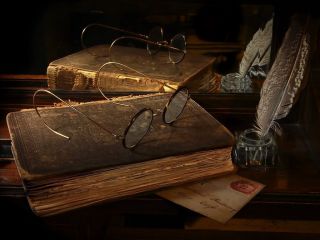Relationships
Love Affair Between Psychology and Poetry
It's April, National Poetry month, time for musings on Psycholgy and Poetry.
Posted April 7, 2015
April is National Poetry Month and perhaps a good time to address the relationship between psychologists and poets. Personally, I believe there is a symbiotic and rarely spoken about relationship between the two. In fact, most poets have favorite psychologists and most psychologists have favorite poets.
Romanyshyn references the psychologist/researcher frequently in his book, The Wounded Researcher as being “the failed poet” suggesting he or she stands at the gap between the conscious and unconscious, and bears the tension between knowing and not knowing. Romanyshyn also admits that the psychologist who keeps the soul in mind is closer in sensibility to the poet, even if he or she is not a poet. Essentially, he’s acknowledging that poetry is an art of the soul, something which has been tangentially addressed over the years. Interestingly, he also references a number of poets in his book, such as Homer, Keats, and Rilke, while identifying some of the common threads between psychologists and poets, the important one being that they tend to be individuals who are able to identify the truths of any given moment. Needless to say, they both play an invaluable societal role and without tooting my own horn, if both exist in one person, well, that’s even better.
As a transpersonal psychologist and poet, each day I see more clearly the power and influence these two professionals have on one another. Every morning I read poetry, oscillating between Rumi and more contemporary poets like Pablo Neruda, Mary Oliver, Sharon Olds,
Denise Duhamel and Billy Collins. For me, poetry is nourishment and sustenance for my day, whether I choose to write or read. Poets, writers and philosophers have been celebrated and honored as voyeurs of those inner motives and insights that guide us as humans. This is particularly apparent in the area of love, which poets have been writing about for centuries, but it’s an area which psychologists have begun tapping into only recently.
One of my favorite humanist psychologists, Rollo May, greatly influenced poet Tom Greening, according to an article in The New Existentialists. Greening acknowledges that, in fact, psychology is hollow without poetry because it carries the wisdom of our search and craving for meaning and understanding in a complex world. In The Portable Jung, edited by Joseph Campbell, there is a chapter entitled, “On the Relations of Analytical Psychology to Poetry” where Jung admits the creative impulse arises from the unconscious, and is also capricious and willful in character. He also says that while following the creative impulse, the reality is that an unseen current sweeps the poet along. I have been in this current while writing my own poetry, whereby a poem’s title comes to me immediately and before I realize it, my words have reached the bottom of the page. I am swept away inside what may be called a creative bubble or trance.
This trance is also described by Rollo May in his book, The Courage to Create, where he says, “Poets may be delightful creatures in the meadow or garret, but they are menaces on the assembly line. Mechanization requires uniformity, predictability, and orderliness,” (p. 69), implying that these are not characteristics inherent to the poet. He sums up the poet’s inclinations by saying, “Creativity in art, poetry, music, and other areas that exist for our delight and the deepening and enlarging of meaning in our lives rather than for making money or for increasing technical power,” (p. 71). How true this is.
Writing poetry is both a psychological and spiritual endeavor because it taps into the practice of mindfulness by encouraging the poet to remain in the moment with their words. The best poems show the poet is tuned into their internal and external landscape by sharing specific details about observations, situations, images or feelings. Weaving therapy with poetry offers powerful healing qualities, as a way to access the inner voice while at the same time enhancing observational skills. What could possibly be wrong with this picture?
References
Campbell, Joseph, Ed. (1971). “On the relationship of analytical psychology of poetry.” In The Portable Jung. New York, NY: Viking.
May, Rollo (1975). The Courage to Create. New York, NY: Viking.
Romanyshyn, Robert. (2007). The wounded researcher. New Orleans, LA: Spring Journal Books.
Wachs, Benjamin (2015). Poetry needs psychology. The New Existentialists. May 19.



